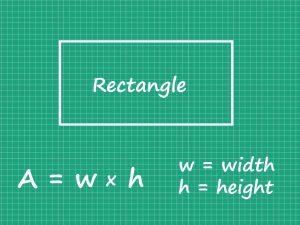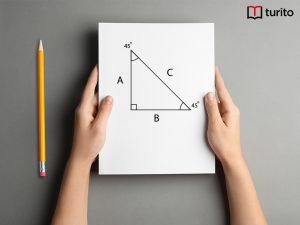What is length?
Length is the term used for identifying the size of an object or distance from one endpoint to another end object.
OR
Length is a measure of how long an object is or the distance between two points.
Metric Unit of Length: In the metric system, the basic unit of length is meter.
Vocabulary:
The most common metric units of length are:
- Kilometer
- Meter
- Centimeter
- Millimeter
Note: – All of the other metric units of length are defined in terms of the meter.
Let us understand the metric units of length, what they are in actual.
Kilometer
Kilometer is the biggest metric unit of measurement.
The abbreviation for kilometer is ‘km’
1 kilometer is equal to 1000 meter
1 kilometer length is the same which is about 2 ½ times around the track.

Meter
It is the base unit of measurement.
The abbreviation for meter is ‘m’
1 meter length is the same as the length of a guitar, the height of a chair.

Centimeter
The abbreviation for centimeter is ‘cm’.
1 clength is same like length of an ant, the length of a dice.

Millimeter
The abbreviation for millimeter is ‘mm’.
1 millimeter length is the same like the thickness of a paper.
We can also understand 1 mm by thickness of a dot.

Some basic customary unit of length and relation between

Distance of Metric Units of Length (Approximate)
- 1 kilometer length is the same that is about 2 ½ times around the track.
- 1 meter length is the same as the length of a guitar, the height of a chair.
- 1 centimeter length is the same as the length of an ant, the length of a dice.
- 1 mm by thickness of a dot.




Conversion between the metric units
To convert larger unit to a smaller unit, we need to multiply.
To convert a smaller unit to a larger unit, we need to divide.

1. 7 m = _____ cm.
2. 6600 cm = _____m.
3. 37 m = _____cm.
4. 66 cm = ____mm.
5. 5 ½ km = ___m.
Solution:
1. 1 m = 100 cm
So, 7 m = 7 × 100 = 700 cm
2. 1 m = 100 cm or 100 cm = 1m
So, 1 cm = 1 ÷ 100 m Now, for 6600 cm = 6600 ÷ 100 m = 66 m
3. 1 m = 100 cm
Now, 37 m = 37 × 100 = 3700 cm
4. 1 cm= 10 mm
66 cm = 66 × 10 = 660 mm.
5. Since 1 km = 1000m
So, 5 ½ km = 5 ½ × 1000 m
= 5 × 1000 + ½ × 1000
= 5500 m
Examples
Example 1: Five books of height 7 cm 5 mm each are stacked over one another. What is the total height so obtained?
Solution:
Height of one book = 7 cm 5 mm
So, the total height obtained for such 5 books = (7cm 5 mm) × 5
= 35 cm 25 mm (But 10 mm = 1 cm)
= (35 cm + 2 cm) and 5 mm
= 37 cm 5 mm
Example 2: Mr. John bought a cloth of length 3890 cm. How much is the length in m and cm?
Solution:
Since, 1 m = 100 cm or 100 cm = 1 m
So, 1 cm = 1/100 m
Now, 3890 cm = 3890 ÷ 100
= 38 m 9 cm
Concept Map

What have we learned
- Identify metric units of length.
- Use multiplication and division to determine metric units equivalencies
- Perform arithmetic calculations on metric units of length.
- Solve application problems involving units of length.

Related topics
Addition and Multiplication Using Counters & Bar-Diagrams
Introduction: We can find the solution to the word problem by solving it. Here, in this topic, we can use 3 methods to find the solution. 1. Add using counters 2. Use factors to get the product 3. Write equations to find the unknown. Addition Equation: 8+8+8 =? Multiplication equation: 3×8=? Example 1: Andrew has […]
Read More >>Dilation: Definitions, Characteristics, and Similarities
Understanding Dilation A dilation is a transformation that produces an image that is of the same shape and different sizes. Dilation that creates a larger image is called enlargement. Describing Dilation Dilation of Scale Factor 2 The following figure undergoes a dilation with a scale factor of 2 giving an image A’ (2, 4), B’ […]
Read More >>How to Write and Interpret Numerical Expressions?
Write numerical expressions What is the Meaning of Numerical Expression? A numerical expression is a combination of numbers and integers using basic operations such as addition, subtraction, multiplication, or division. The word PEMDAS stands for: P → Parentheses E → Exponents M → Multiplication D → Division A → Addition S → Subtraction Some examples […]
Read More >>System of Linear Inequalities and Equations
Introduction: Systems of Linear Inequalities: A system of linear inequalities is a set of two or more linear inequalities in the same variables. The following example illustrates this, y < x + 2…………..Inequality 1 y ≥ 2x − 1…………Inequality 2 Solution of a System of Linear Inequalities: A solution of a system of linear inequalities […]
Read More >>Other topics











Comments: